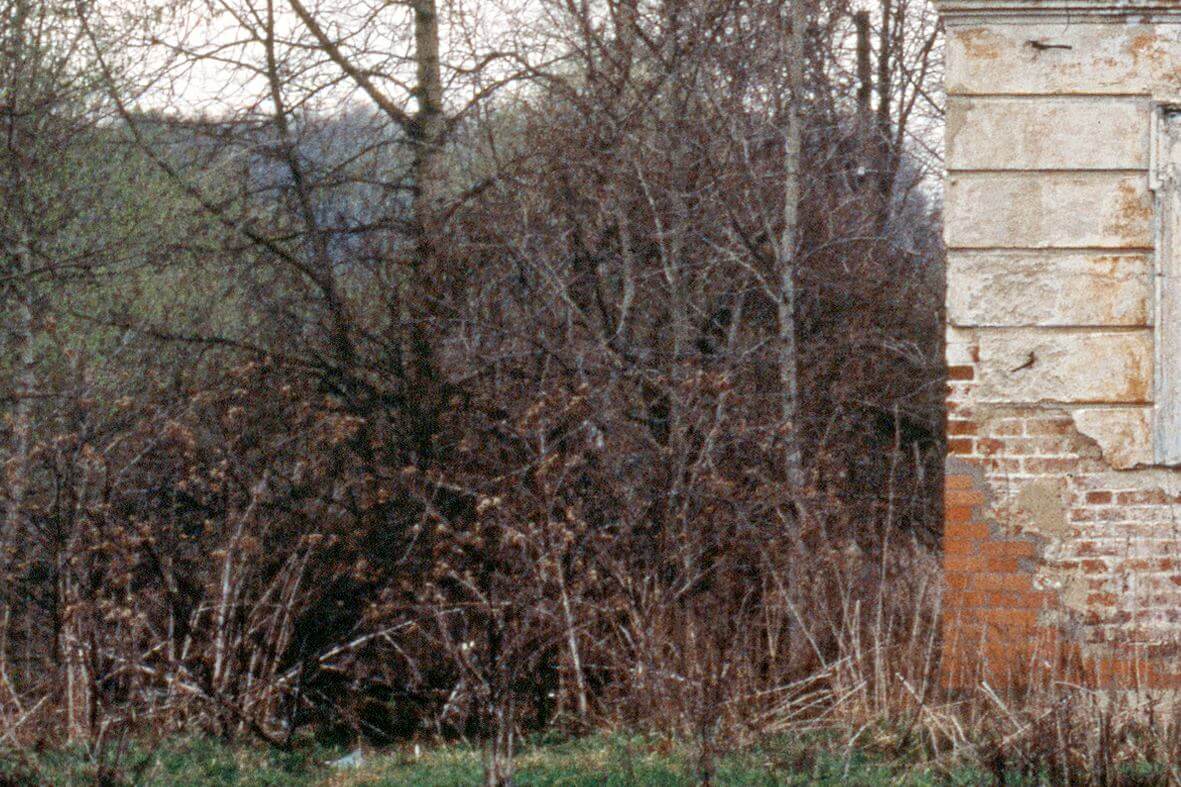Exhibition
Pavel Matveyev
With everyone’s imagination atrophied, no one will ever be a threat to the world #4
A Dead Beauty
Pavel Matveyev’s adolescence was spent in post-Soviet Russia. He developed as an artist in England and Sweden. One image of indisputable beauty that enchants him is that of a Russian manor house, one of the palaces of the aristocracy that abound in the Moscow region. In the days of the Soviet Union, when, after the revolution, their owners had either immigrated or been exterminated, most of the manor houses were found in complete disrepair. They only had a chance of survival if they were used as sanatoria or children’s hospitals, although they were little suited for medicinal purposes.
Photo series of Russian manor houses were fashionable in Russia at the beginning of perestroika; a second wave of interest came in the end of the 1990s and beginning of the noughties. Both were connected to the exploration of the post-Soviet concept. For the most part, these were catalogues of ruins. Their authors were horrified at the results of the socio-anthropological catastrophe of the Soviet period, yet the remains of the former beauty charmed them. In Pavel Matveyev’s interpretation, the post-Soviet space is devoid of emotive meaning. There is no pity, no nostalgia, only the purity of observation: photography, sound. This is post-history, post-culture, post-game. This is a picture of a dead and, possibly, once great culture. And if he touches the audience with his art, then he does it in the same way that the ruined spaces of Cairo and Istanbul do. Pre-Soviet Russian culture (or material culture of the empires of the past century, which is more accurate as far as the interests of Matveyev’s art are concerned) cannot be brought back to life with the help of emotions, reminiscences and sentiment. You do not need to bring it back to life – we are content to observe a splendid mummy. Pavel’s project is a time machine, a baroque installation, which does not project any emotional warmth. This is melancholy with its cold intelligence. But this is not preservation or cataloguing; the author also captures his feelings about watching death – that intellectual boundary which maintains the image of a dead beauty that is culture.
Text by Elena Fanailova, translated by Svetlana Graudt.
Opening:
Friday, 12.12.2014
17:00–20:00
Opening hours:
Saturday–Sunday
12:00–17:00

